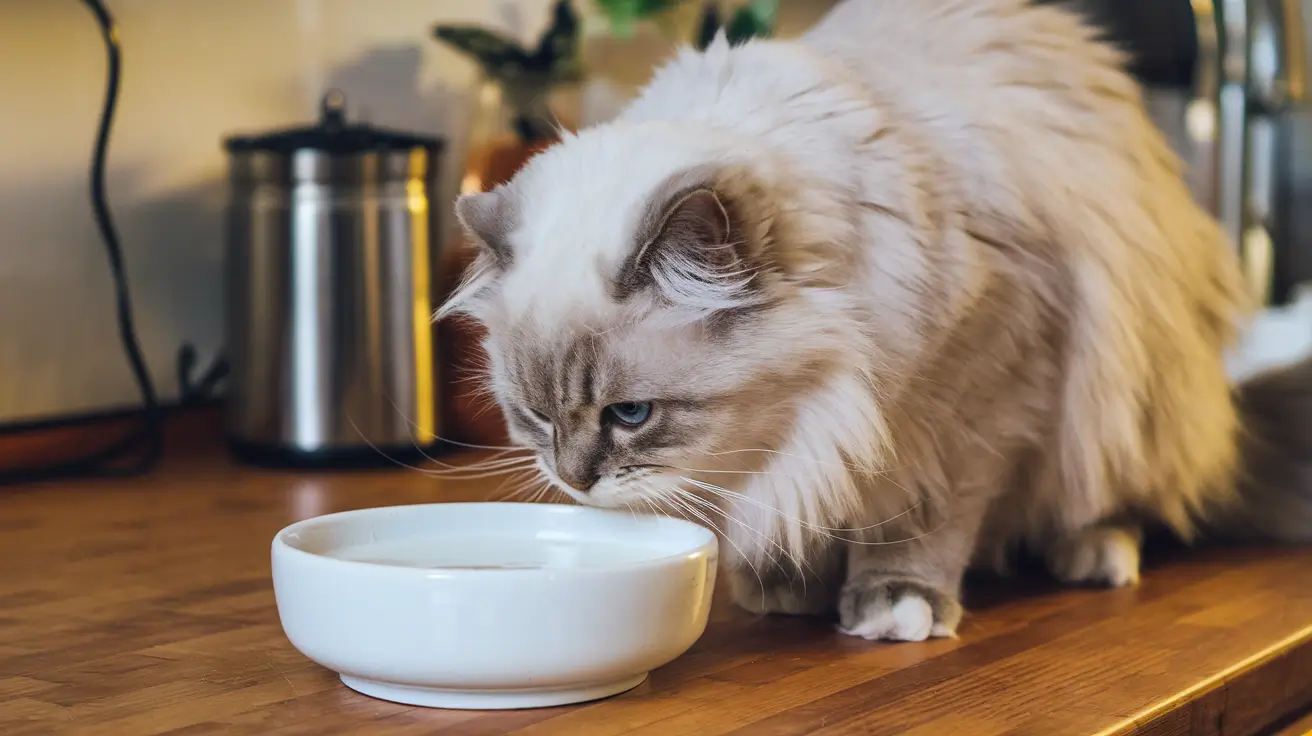Introduction: The Allure of Milk for Cats
Many cat owners have experienced the scenario where their feline friend eagerly awaits the moment milk is poured onto cereal, hoping for a spill. The taste of milk is undeniably attractive to cats, leading many to wonder if it's safe for them to consume. While the image of a cat lapping up milk is a common one, it's important to understand whether this treat is beneficial or harmful to their health.
Understanding Lactose Intolerance in Cats
The Science Behind Lactose Intolerance
As cats mature, they often lose the enzyme lactase, which is essential for breaking down lactose, the sugar found in milk. This loss leads to lactose intolerance, a condition also seen in some humans. Without sufficient lactase, lactose remains undigested, causing various digestive issues in cats.
Signs of Lactose Intolerance
Cats that are lactose intolerant may exhibit symptoms such as vomiting, diarrhea, and gas after consuming milk. These symptoms typically appear within 12 hours of ingestion. The undigested lactose draws water into the intestines, leading to diarrhea, while bacteria in the colon ferment the sugars, causing gas and discomfort.
The Effects of Milk on Cat Health
Gastrointestinal Distress
Milk consumption can lead to significant gastrointestinal distress in cats. The symptoms of lactose intolerance, including diarrhea and gas, can be quite uncomfortable and may lead to more severe health issues if not addressed promptly.
Long-term Health Risks
Beyond immediate digestive problems, regular milk consumption poses long-term health risks for cats. Cow’s milk is high in fats and sugars, contributing to an unbalanced diet and increasing the risk of obesity. Over time, this can lead to further health complications, making it crucial to limit a cat's milk intake.
Alternatives to Cow’s Milk
Plant-Based Milk: A Misconception
Many believe that plant-based milks such as oat, soy, almond, and coconut are safe alternatives for cats. However, these milks often contain fats, sugars, oils, thickeners, and preservatives that can also cause gastrointestinal upset. Additionally, some may have added salt, which is unsuitable for cats with hypertension or kidney issues.
Specialized Milk Products for Kittens
While adult cats should avoid milk, kittens can safely consume milk from their mothers. As they wean, they lose the ability to process milk effectively. For orphaned or supplement-needing kittens, specialized milk products designed to mimic cat's milk are available. It's important to choose these products carefully to meet their nutritional needs.
Hydration: The Best Beverage for Cats
The Importance of Fresh Water
Water is the most suitable drink for cats. Ensuring they have access to fresh water is crucial for their health. Encouraging water consumption can prevent dehydration and support overall well-being.
Creative Ways to Serve Water
To make water more appealing, consider offering it in various forms. A dripping faucet or water fountain can entice cats to drink more. Adding ice cubes to their water bowl or mixing water with canned food to create a soup can also increase their water intake.
Monitoring Your Cat's Health
When to Seek Veterinary Care
If a cat shows severe or prolonged symptoms of lactose intolerance, such as persistent vomiting or diarrhea, it's important to seek veterinary care. Dehydration is a risk, and professional guidance can ensure your cat's health is maintained.
Self-Limiting Nature of Lactose Intolerance
Most cases of lactose intolerance in cats resolve on their own within 24 hours. However, vigilance is key. Monitoring your cat's health and being aware of any adverse reactions to milk can help prevent serious complications.
Conclusion: Prioritizing Your Cat's Well-being
While milk may be tempting for cats, it is not a suitable beverage due to the common occurrence of lactose intolerance and associated health risks. Instead, focus on providing a balanced diet and plenty of fresh water. By avoiding dairy products and choosing appropriate alternatives under veterinary guidance, you can ensure your cat's health and happiness.






